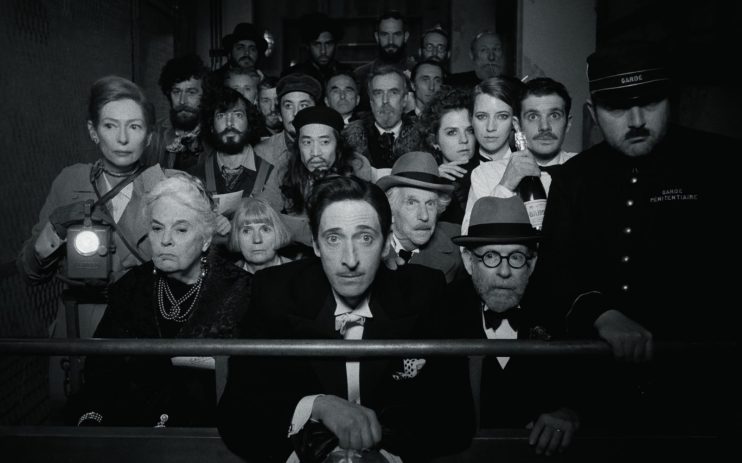The French Dispatch, review: A playful homage to journalism

Twenty five years and ten films since his feature debut, Wes Anderson can be considered one of the few remaining superstar directors. Like Nolan, Tarantino, The Coens, and (Paul Thomas) Anderson, he exists outside of the studio franchise churn, making films in which he is the primary selling point. It’s likely many fans will forgo the research and see The French Dispatch simply on the basis that it is “The New Wes Anderson”, a level of trust many filmmakers would give their eye teeth to achieve.
The French Dispatch embraces a lot of the director’s familiar visual traits, but adopts a different narrative format. It centres on the eponymous travelogue, which reports stories from around Europe to readers in Kansas. Based in the vibrant French city of Ennui-sur-Blase during the 20th century, the magazine’s founder and editor Arthur Howitzer Jr (Bill Murray) encourages, coaxes, and challenges his writers to bring him compelling stories, while treating the rest of his staff like dirt. He has only two rules: no crying, and that his writers “try to make it sound like you wrote it that way on purpose”.
The rest of the film focuses on three main stories, all presented by their writers. We visit an imprisoned murderer (Benicio Del Toro) whose love for a warden (Lea Seydoux) inspires revolutionary art; a cynical journalist (Frances McDormand) who gets too close to a student revolution led by the bold but foolish Zeffirelli (Timothee Chalamet); and a food writer (Jeffrey Wright) who finds himself unwittingly embroiled in a kidnapping case.
This short story format gives Anderson’s familiar visual flourishes a fresh coat of paint. We still get the symmetrical establishing shots, the animated interludes, and regular voiceovers but the structure gives these elements new purpose.
The film has been described as a love letter to journalism, with the fictionalised tales loosely based on famous articles from The New Yorker. McDormand closely resembles Mavis Gallant, the Canadian journalist whose story inspired the segment; while Wright may as well be making a James Baldwin biopic given all the nods to the great author. Chiefly, the director is borrowing the feeling of those stories, sitting eagerly on the shoulders of the narrators as we go on an adventure that mixes artistry, emotion, and farce.
From cunning art dealer Julien Cadazio (Adrien Brody) to culinary genius Lt. Nescaffer (Stephen Park), his world is filled with characters who bring comedic joy to the screen. Even the not-so-subtle French names signal that this is a story made for enjoyment rather than depth. The tense, push-and-pull relationship between Del Toro and Seydoux is played out with equal parts intensity and daftness; while McDormand wades through the overly-emotional youthful posturing to find true leaders in the revolutionary ranks.
Arguably the most complete story is the third and final piece, which puts Wright in a well-deserved spotlight. So often an ace supporting act, he rises to the challenge of a lead character, adeptly handling moments of drama and comedy.
There are some minor gripes – the format means some of the emotional beats lack the punch of Anderson’s best work, with little time to develop the connections we feel for Monsieur Gustave H, or Max Fischer. Here, some of the famous names make such brief appearances you’ll wonder if it was really them.
For fans of the filmmaker, The French Dispatch will deliver everything you want. Every frame may as well have Anderson’s signature in the corner, and the playful dialogue is what we have come to expect from the director.